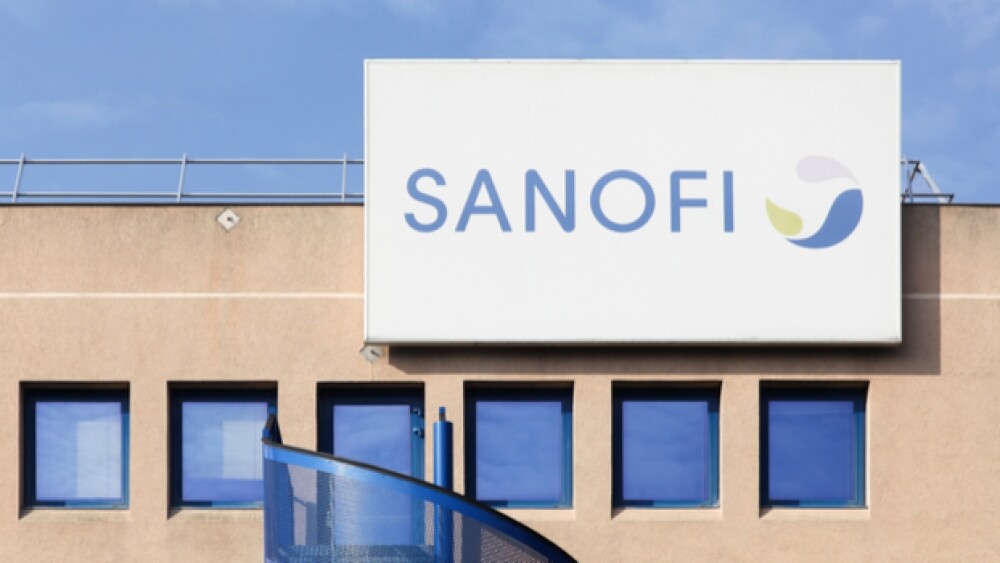Shares of Denali Therapeutics are up more than 10 percent in premarket trading after the company announced it has inked a collaborative deal with Sanofi to develop potential treatments for neurological and systemic inflammatory diseases.
richochet64 / Shutterstock.com
Shares of Denali Therapeutics are up more than 10 percent in premarket trading after the company announced it has inked a collaborative deal with French biopharma company Sanofi to develop potential treatments for neurological and systemic inflammatory diseases that could be worth more than $1 billion.
Bay Area-based Denali and Sanofi will focus on the development of two molecules, DNL747 and DNL758, both of which target a signaling protein known as the receptor-interacting serine/threonine-protein kinase 1 (RIPK1) in the TNF receptor pathway. RIPK1 regulates inflammation and cell death in tissues throughout the body. The collaboration also includes additional pre-clinical RIPK1 inhibitor molecules, the companies said.
Sanofi and Denali will take each of the proteins and study their efficacy on multiple disease targets. The two companies will take DNL747 and study it in multiple sclerosis, Alzheimer’s disease, and amyotrophic lateral sclerosis (ALS), also known as Lou Gehrig’s disease. DNL74 is a brain—penetrant small molecule. It is being evaluated in Phase I trials. The companies said Phase Ib trials for Alzheimer’s disease and ALS are expected to begin in the near-term future. Those trials are expected to inform subsequent clinical development, the companies said. Denali, which has a significant focus on Alzheimer’s disease, will lead the Phase II clinical trials in that area, while Sanofi will lead the Phase II clinical trials in MS and ALS, as well as future Phase III trials in all neurological indications.
DNL758, a small molecule that does not penetrate the brain, will be studied in systemic inflammatory diseases such as rheumatoid arthritis and psoriasis. Sanofi will lead clinical development activities for all systemic inflammatory diseases. The clinical trials are expected to begin in 2019, the companies said.
Denali Chief Executive Officer Ryan Watts said RIPK1 is a promising target and has the potential to provide needed therapy for patients suffering from neurodegenerative diseases as well as systemic inflammatory diseases.
“We are very excited to partner with Sanofi and expand our RIPK1 program into new indications. With its considerable infrastructure and experience in both clinical development and commercial functions, Sanofi is an ideal partner for Denali to maximize the clinical and commercial success of our RIPK1 program,” Watts said in a statement.
Rita Balice-Gordon, global head of rare and neurologic diseases research at Sanofi, said the companies are excited to explore the potential of RIPK1 as a potential treatment in neurologic and inflammatory diseases.
Under terms of the agreement, Sanofi will make an upfront cash payment of $125 million to Denali. Future development and commercial milestones could result in payments that could exceed $1 billion. Sanofi and Denali will share commercial profits and losses from DNL747 in the U.S. and China equally, while Denali will receive a royalty from Sanofi for other territories for DNL747 and worldwide for DNL758, according to the announced terms of the deal.
Early development for DNL747 in MS, ALS and other neurological condition will be funded by Sanofi, with the exception of Alzheimer’s research. That will be funded by Denali. Phase III trials for all neurological indications will be jointly funded by Sanofi and Denali, at 70 percent 30 percent, respectively. Sanofi will fully fund the clinical development costs for DNL758 in systemic inflammatory diseases.
This isn’t the first big collaboration Denali struck to go after Alzheimer’s. Earlier this year the company forged an agreement with Takeda Pharmaceutical to harness Denali’s Antibody Transport vehicle Technology to take on the devastating form of dementia. That deal could also be worth more than $1 billion.





